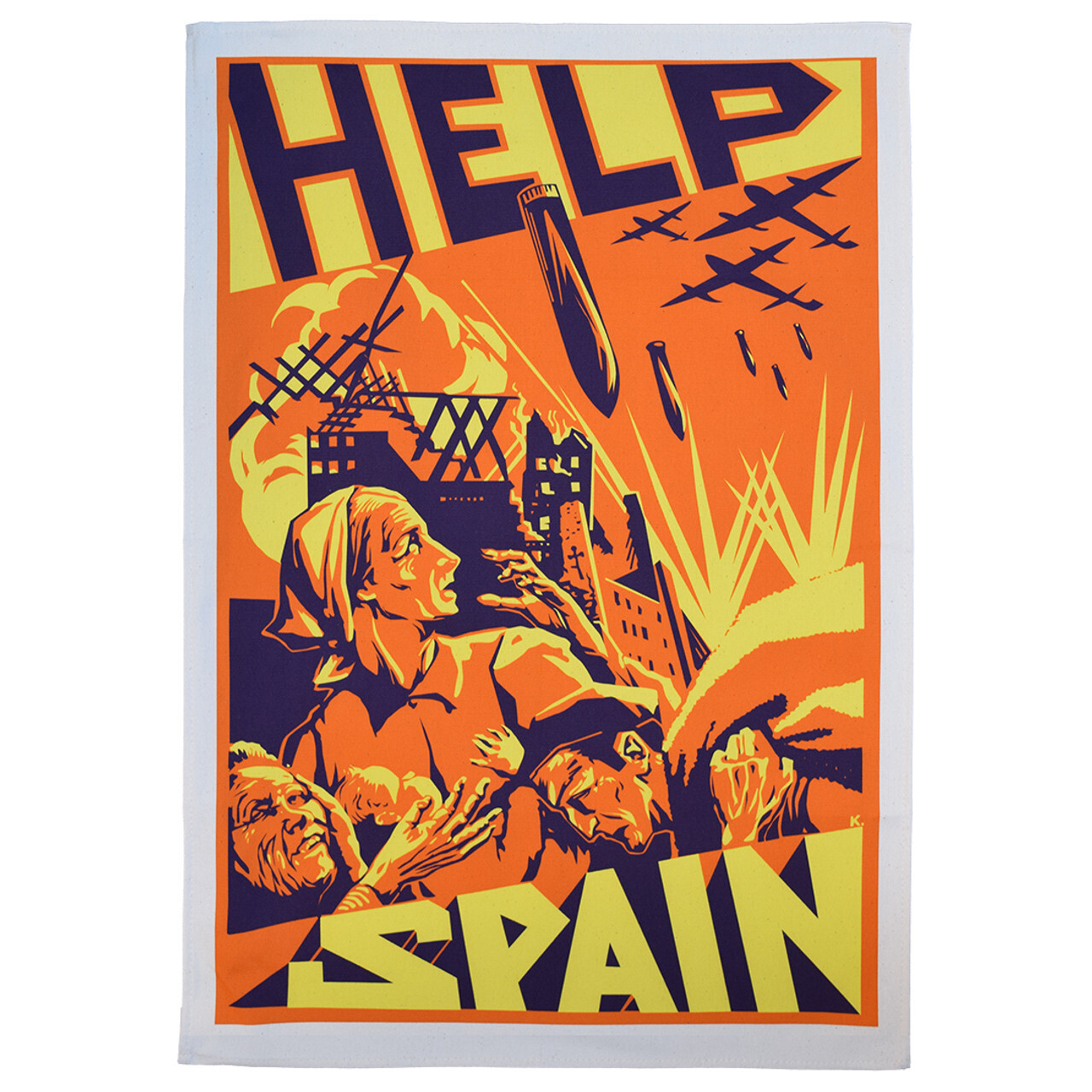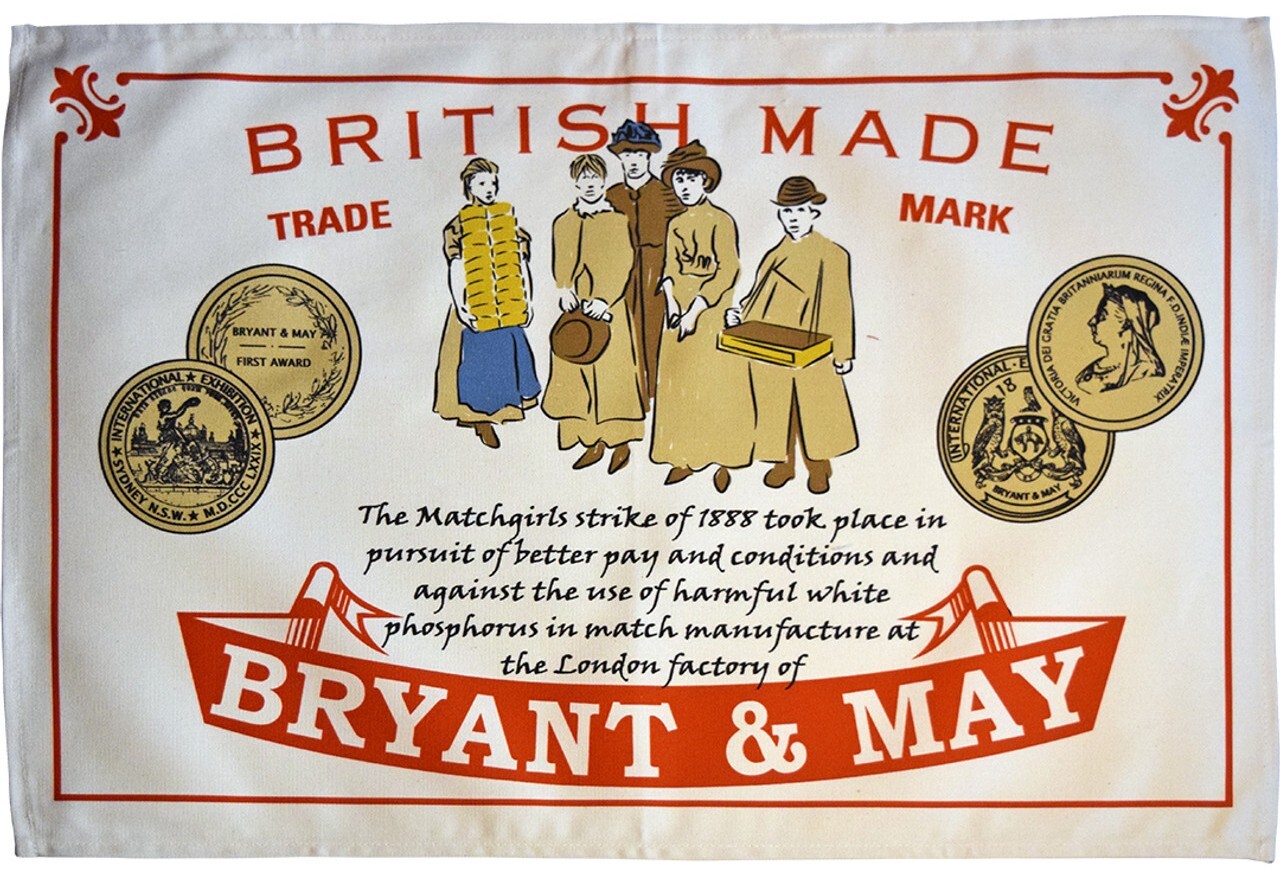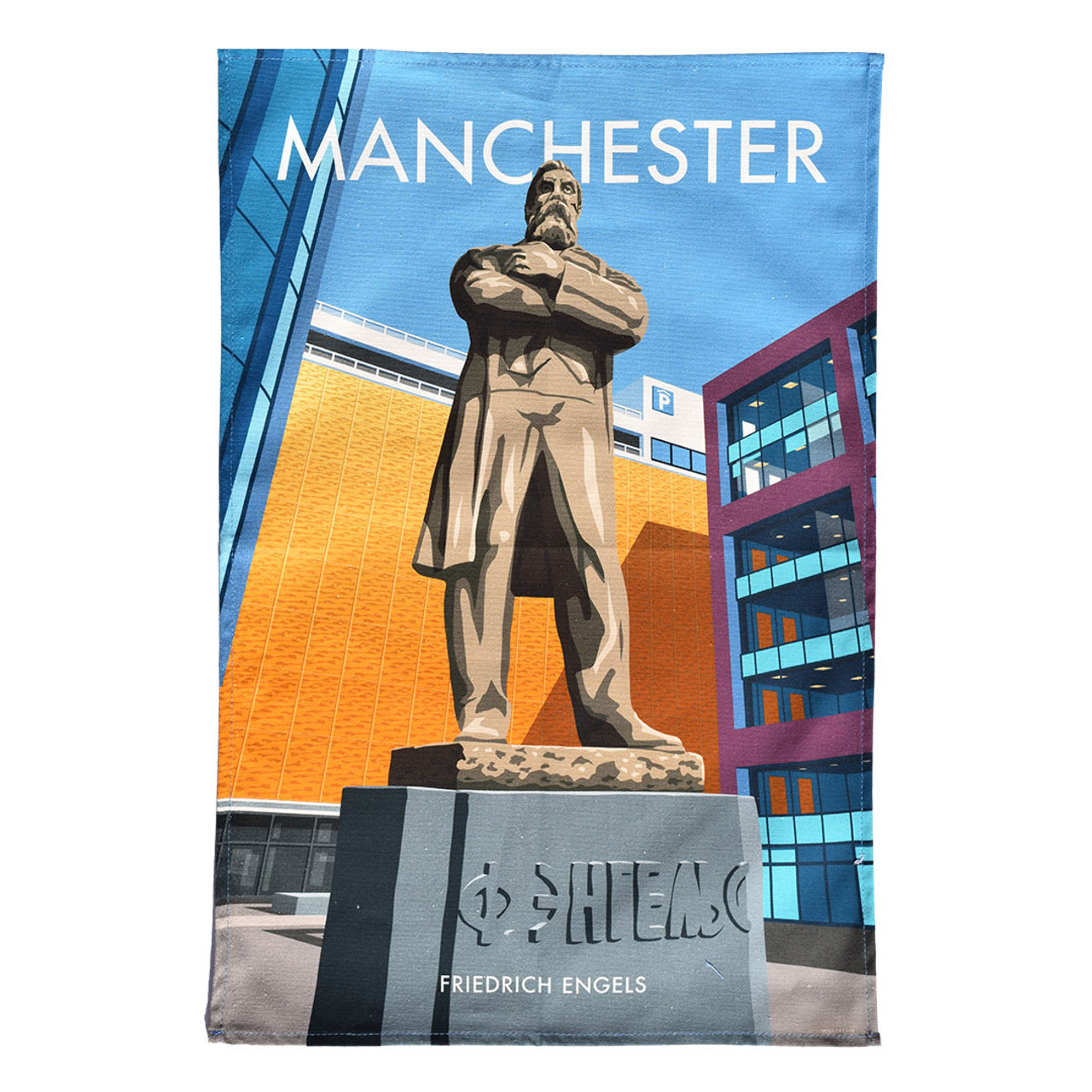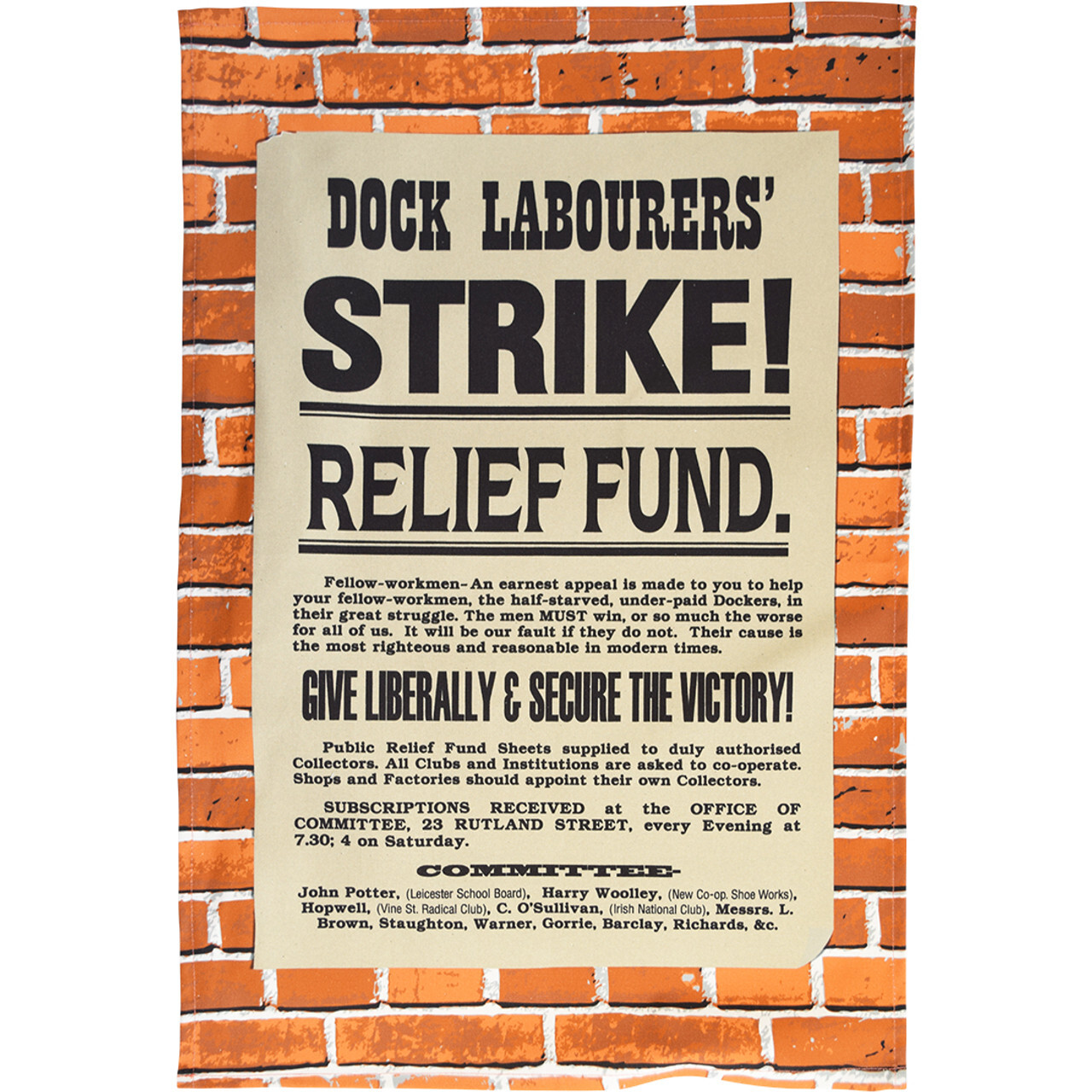Tom Mann: Radical Legend of 1930s Britain
Posted by Pete on 11th Apr 2025
The story of the man whose name inspired a British battalion in the Spanish Civil War
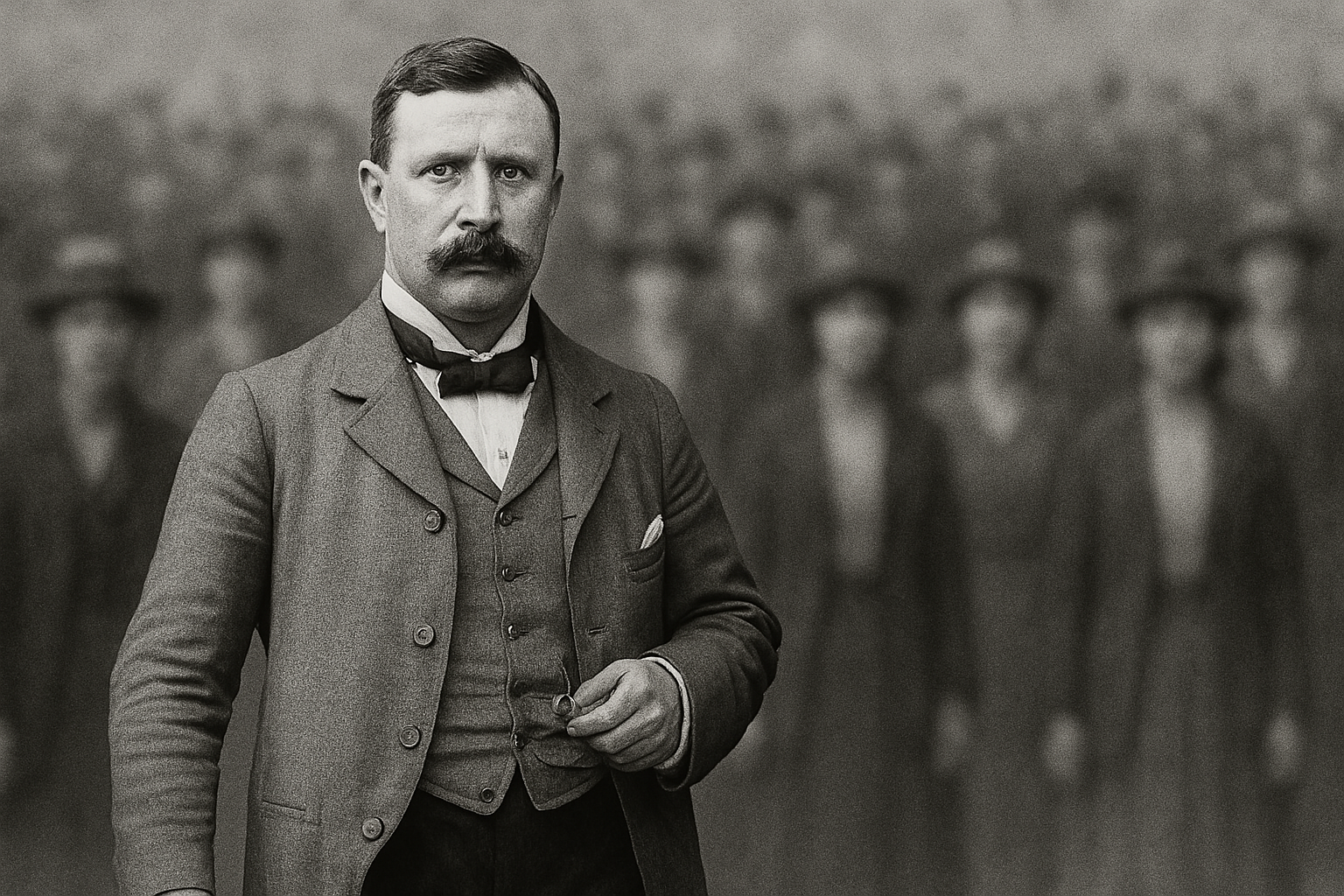
Tom Mann, a pioneering figure in Britain's early labour movement
In 1936, volunteer military units from all over the world journeyed to Spain to fight against Franco’s fascist rebellion.
The International Brigades were named for figures from the radical history of their home countries.
The Americans formed the ‘Abraham Lincoln’ Battalion, the Irish formed the ‘James Connolly’ Column.
One of the lesser known namesakes, though, was a guy called Tom Mann.
In 1936, an early group of British volunteers created the ‘Tom Mann Centuria’ with the slogan “proletarian discipline will conquer fascism.”
Progressive allies from all over the world journeyed to Spain in the 1930s to support the fight against fascism
See the Spanish Civil War tea towel
Tom Mann was a radical legend in 1930s Britain.
Born in Coventry in 1856, he became a global labour organiser and socialist revolutionary.
He was the son of a colliery worker and was made to work in the mines as a child during the 1860s.
In 1870, the family moved to Birmingham, where Mann apprenticed as an engineer.
It was in Birmingham that Mann began to develop leftwing political consciousness, attending speeches by socialists like Annie Besant.
He moved to London in 1877 but couldn’t find skilled work.
Steeled by the economic hardship of working-class life in Victorian Britain, Mann worked on his own socialist education, reading the works of William Morris and progressive economists like Henry George.
Along with socialists including Annie Besant, Tom Mann supported the Match Girls Strike of 1888
See the Matchgirls' Strike tea towel
In 1881, Mann joined a trade union for the first time, the Amalgamated Society of Engineers, and he was soon involved in strikes.
A few years later, Mann joined the earliest Marxist party in Britain, the Social Democratic Federation (SDF), in Battersea.
He led SDF campaigning for an Eight-Hour-Day in Britain, the international working-class cause for which May Day was invented.
He also travelled up to Newcastle to help set up SDF branches in the North of England. While there, he helped out on Keir Hardie’s election campaigns in Scotland, too.
Back in London, after reading Marx and Engels’ Communist manifesto, Mann became a committed Marxist.
Marx and Engels' influence was significant for Mann
See the Manchester Engels tea towel
Mann was active across London organising huge strikes.
In 1888, he helped out with the victorious Matchgirls’ Strike at the Bryant and May factory in Bow.
Elsewhere in the East End, Mann played a lead role in organising the London Dock Strike of 1889.
In politics during the 1890s, Mann co-founded the socialist Independent Labour Party (ILP) with Keir Hardie.
Then, in 1902, Mann emigrated to Australia for a decade, where he thought socialism might find better prospects thanks to working-class voting rights.
But his experience as an activist with the Australian Labor Party left him disenchanted with party politics.
He concluded that the experience of government separated socialist representatives from their working-class base, leading to very un-socialist policy-making.
Back in Britain in 1910, Mann became a leading ‘syndicalist’ theorist, arguing that trade unions were the real agent of political as well as economic democracy.
He led the Liverpool General Strike of 1911, which saw Mann convicted under the Incitement to Mutiny Act of 1797, which had been passed in response to the revolutionary Spithead and Nore naval mutinies during the age of revolutions.
Mann had urged working-class British Army soldiers not to fire on strikers in Liverpool if they were ordered to by their upper-class officers. And he would’ve been imprisoned if not for a massive popular protest for his release.
Mann was involved in all the major progressive causes of the late 19th century - from the London Dock Strike to the creation of the SDF and the Labour Party
See the London Dock Strike tea towel
With the rest of the principled British Left, Mann opposed the First World War during 1914-18.
Mann also supported the Russian Revolution of 1917, seeing it as a break with the established socialist movement in Europe, now stained by its bloody compromises with capitalism and militarism.
Alongside other British radicals like Shapurji Saklatvala, Mann co-founded the British communist party in 1920.
Although getting old now, Mann was active in the new communist movement throughout the 1920s and 1930s.
By 1936, when Franco rebelled against the Spanish Republic, Mann was too old to join his British comrades in taking up arms to fight against fascism in Spain.
But in recognition of his decades of struggle, the ‘Tom Mann Centuria’ was formed.
The banner of ‘Tom Mann’ would fly with the likes of Lincoln, Connolly, and Mackenzie-Papineau, in the fight for working-class liberation from fascism, militarism, and capital – the cause of Tom Mann’s life.

